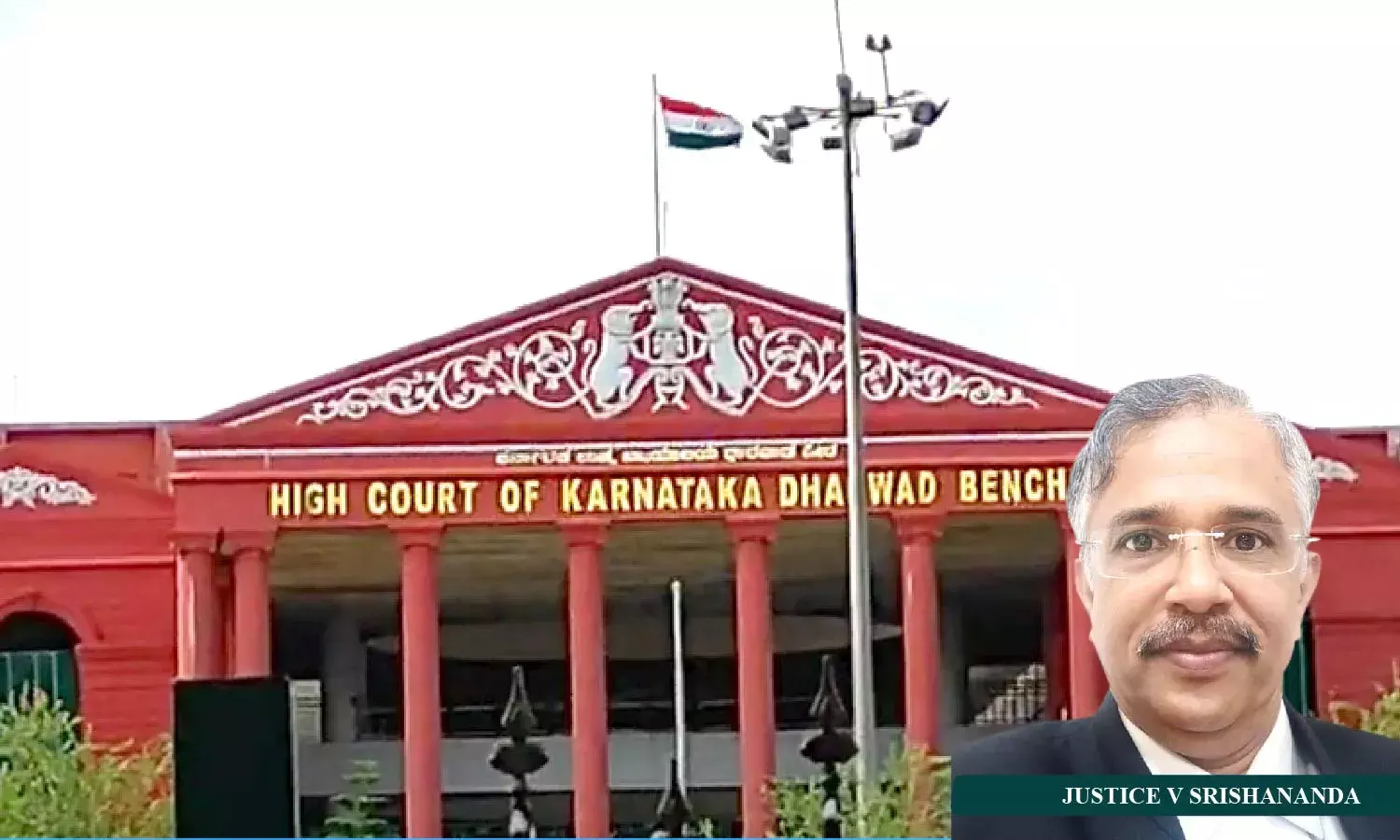Writ Petition Is The Only Remedy Against A Compromise Decree Passed In Lok Adalat Obtained By Fraud: Karnataka High Court

Justice V Srishananda, Karnataka High Court
The Karnataka High Court held that the writ petition is the only remedy against a compromise decree passed in Lok Adalat which is obtained by fraud.
The Court said that it is for the court to find out what is the methodology to be adopted if there is an allegation of fraud.
The Dharwad Bench of the Court was dealing with a second appeal that was preferred against the order of the Senior Civil Judge, Saundatti.
A Single Bench of Justice V. Srishananda observed, "The only remedy that is available for the respondent who said to have been cheated by impersonation and a compromise decree came to be passed is to approach the High Court in a writ petition under article 226 and 227 of the Constitution of India."
“If is for the Court to find out what is the methodology to be adopted if there is a allegation of fraud. … It is no doubt true that if there is a allegation of fraud, no remedy is carved out under the Act, 1987. When so such remedy is available, the only remedy that is available is to challenge the provisions of the statute in a appropriate writ petition”, also said the Court.
The Bench added that filing a separate suit under Section 9 of the Civil Procedure Code (CPC) when there is a clear bar under Legal Services Authorities Act, 1987 (LSAA) is not maintainable.
Advocate Laxman T. Mantagani appeared for the appellant while Advocate O.B. Joshi appeared for the respondent.
In this case, a suit was filed that was disposed off by filing a compromise petition and a final decree was passed before the Lok Adalat. Being aggrieved by this, the respondent (plaintiff) person filed a suit contending that the defendant was impersonated and a compromise decree was passed. The said suit was dismissed and the appellant person filed a first appeal before the Senior Civil Judge.
The first Appellate Court by a contexted judgment, set aside the judgment and decree passed and decreed the suit as prayed for. Being aggrieved by the said judgment, the defendants who were earlier plaintiffs preferred the second appeal before the High Court.
The High Court in the above context of the case noted, “As such, compromise decree would not only be binding on the defendant Hanamant Bhimappa Bhajantri, but also award is bad on the ground that the same has been obtained by fraud. As such what is the remedy who has suffered such an order in such circumstances is no longer res integra.”
The Court referred to the judgment in the case of Bhargavi Constructions v. Kothakapu Muthyam Reddy (2018) 13 SCC 480 in which the Apex Court held that when there is a bar under the Act, 1987, the only remedy is to file a writ petition challenging the compromise decree passed in the Lok Adalat.
“In view of the authoritative pronouncement of the Hon’ble Apex Court, further discussion on the judgments relied on by the respondent which were rendered by different High Courts is unnecessary. … Further, when there was no appeal provision, the only remedy that is available to challenge the order by way of writ petition under the Article 226 and 227 of the Constitution of India”, it said.
“Reserving such liberty for the respondent Hanamant Bhimappa Bhajantri, this Court is of the considered opinion that the judgment passed by the first Appellate Court needs to be set aside and that of the Trial Court in dismissing the suit in O.S.No.98/2016 is to be upheld”, it concluded.
Accordingly, the High Court allowed the miscellaneous second appeal and set aside the impugned order.
Cause Title- Shantawwa v. Hanamant Bhimappa Bhajantri (Neutral Citation: 2024:KHC-D:2404)
Appearance:
Appellant: Advocate Laxman T. Mantagani
Respondent: Advocates O.B. Joshi and Sanjay S. Katageri.


